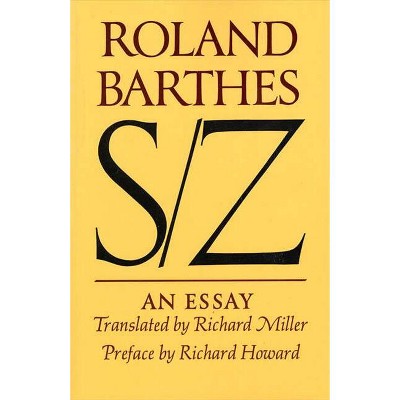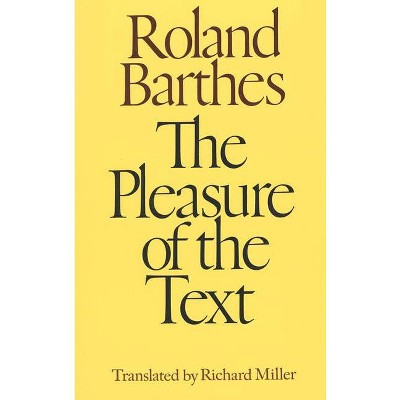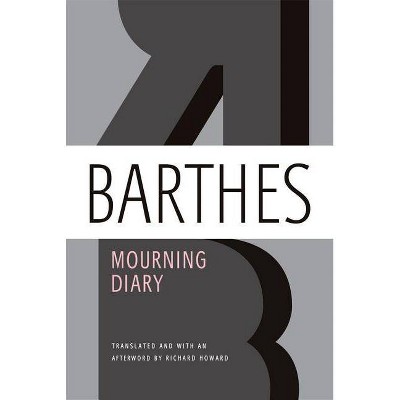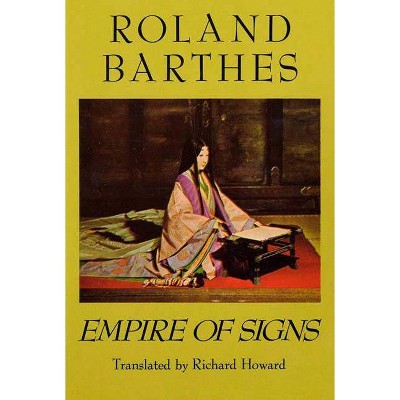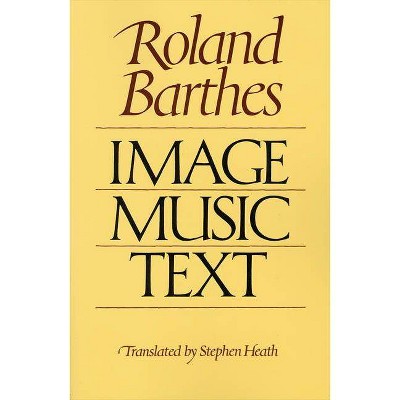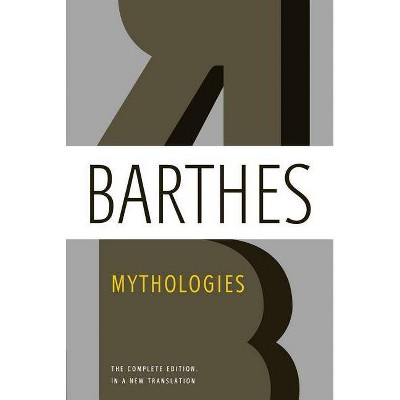Sponsored

Writing Degree Zero - by Roland Barthes (Paperback)
In Stock
Sponsored
About this item
Highlights
- Is there any such thing as revolutionary literature?
- About the Author: Roland Barthes was born in 1915.
- 112 Pages
- Literary Criticism, Semiotics & Theory
Description
About the Book
Originally published in French in 1953 by Editions du Seuil, France, as Le degre zero de l'ecriture.Book Synopsis
Is there any such thing as revolutionary literature? Can literature, in fact, be political at all? These are the questions Roland Barthes addresses in Writing Degree Zero, his first published book and a landmark in his oeuvre. The debate had engaged the European literary community since the 1930s; with this fierce manifesto, Barthes challenged the notion of literature's obligation to be socially committed. Yes, Barthes allows, the writer has a political and ethical responsibility. But the history of French literature shows that the writer has often failed to meet it--and from Barthes's perspective, literature is committed to little more than the myth of itself. Expert and uncompromising, Writing Degree Zero introduced the themes that would soon establish Barthes as one of the leading voices in literary criticism.
Review Quotes
"You need to read this book, this strange book: Writing Degree Zero. You need to be defeated by it. And then you need (like Barthes) to begin a revolution." --Adam Thirlwell, from his foreword
"A sweeping account of French literature." --Kenneth R. Weinstein, The Washington Times "Barthes's myths about literature are extremely talented, even masterful . . . They acknowledge basic antinomies that even the most gifted minds addressing the same subject, such as Sartre, have glossed over." --Susan SontagAbout the Author
Roland Barthes was born in 1915. A French literary theorist, philosopher, and critic, he influenced the development of various schools of theory, including structuralism, semiotics, existentialism, social theory, Marxism, and post-structuralism. He died in 1980.
Shipping details
Return details
Trending Paperback Books






